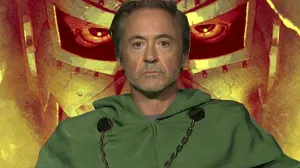Anime is an ever-changing game that requires the industry’s executives to be flexible. In the last few years, new players have entered the arena such as Crunchyroll with its hit originals, and the same goes for Netflix. The site is the leader in global streaming, and it has made a public vow to support anime, but it seems one report from Japan suggests executives are still wary of the giant.
Videos by ComicBook.com
The report comes from Tokyo Keizai as the online paper interviewed a few anonymous executives from studios in Japan. The anime insiders were asked what they felt about Netflix’s model for anime production, and the results were mixed. While the admits there is plenty to celebrate with Netflix, the site has some practices which fly in the face of the anime industry.
According to one interviewee, they said a successful anime is a win for Netflix while a flop is a success for the production studio who made the show. This is because Netflix negotiates to buy streaming rights outright, so production companies are not given any royalties. If a show is popular, it works for Netflix because it reaps the rewards of all those views. But if a show doesn’t become a hit, Netflix has already paid for the rights to the production studio.

Netflix has also frustrated executives because of its policy to keep viewership numbers secret. The site does not share those figures with any of its partners, and interviewees say that it makes it difficult to negotiate better deals with the giant. If the studios do not know how well their show did, they cannot easily negotiate more money for new seasons or projects.
Most importantly, the anime industry is used to making money through shows as well as merchandise, video games, and home releases. The business model is multifaceted but Netflix deals with streaming only. That makes the potential audience for a given show limited, and one person interviewed said it is hard to make a hit anime for Netflix. “It would have been difficult for Demon Slayer: Kimetsu no Yaiba to become the huge hit that it was if it was only distributed through streaming,” they shared.
Despite its higher rates and large talent pool, Netflix has some wary when it comes to committing. The new distribution source is certainly enticing, and it has been a success for some shows. But in the grand scheme of things, the anime industry admits it needs more data on Netflix before it is willing to sink more stock into the site.
What do you think about Netflix‘s model of anime production? Let me know in the comments or hit me up on Twitter @MeganPetersCB to talk all things comics and anime!








